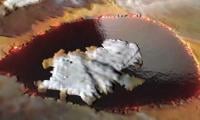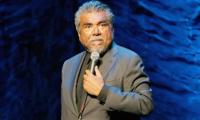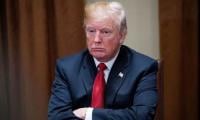PESHAWAR: Though the Taliban haven’t commented on the recent decision by China to extend for the first time military assistance to the Afghan government, they are privately discussing it and reviewing their relations with the Chinese government.
China has maintained steady contacts with the Taliban even after the fall of the Taliban regime. It has also maintained friendly relations with the Afghan government. This policy enabled China to become acceptable as a mediator and peacemaker in Afghanistan and its membership of the Quadrilateral Coordination Group for facilitating peace talks between the Afghan government and the Taliban was welcomed. However, its move to supply military hardware to the Afghan government could upset that balance.
According to Afghan officials, Chinese transport aircraft brought weapons to Kabul recently to be welcomed by Afghan President’s National Security Adviser Mohammad Hanif Atmar and the Chinese ambassador to Afghanistan.
An Afghan defence ministry official Ghulam Sakhi Ahmadzai said the Chinese assistance included transport aircraft, logistic equipment, weapons and other military gadgets. He said assistance worth millions of dollars would be provided to Afghanistan in various phases.
Hanif Atmar said the assistance showed positive changes in relations between Afghanistan and China, adding that Nato, Russia, India and China were standing by Afghanistan. Besides, he said the Chinese military help for Afghanistan was an evidence of regional and international unity against terrorism and it showed that Afghanistan is not alone.
The Chinese ambassador said on the occasion that China was ready to extend assistance to Afghanistan and strengthen the Afghan forces to fight against terrorism.
Meanwhile, Taliban lost an important commander in the Nangarhar province in a recent US drone strike. Afghan officials and Taliban spokesman confirmed that Sabir Kochi was among those killed in the drone attack in Khugyani district. Afghan officials put the death toll of Taliban fighters at 11, but Taliban spokesman Zabihullah Mujahid insisted that only Sabir Kochi was killed and five Taliban fighters were wounded in the strike.
Sabir Kochi had fought both against the US and Afghan forces, but in recent months he was engaged in fighting against the Islamic State fighters in Nangarhar. He had gone to Khugyani district to meet Taliban commander Mulla Nek Mohammad Rahbarto plan attacks against the Daesh in the area. His death is considered a big loss for Taliban.
The US has stepped up drone strikes in the eastern Nangarhar province, targetting both IS and Taliban. Some drone attacks in Achin and Kot districts killed several IS fighters, including commanders. The US is focusing on these districts as the IS has its strongholds there. The drone strikes against the Taliban have also increased since President Obama ordered his troops to assume a combat role and authorised drone attacks against the Taliban leaders.
Meanwhile, as the Islamic State (IS) and the Afghan Taliban continue to fight each other in the Nangarhar province, the former released a video in which IS fighters are executing four men, including three Taliban fighters. The 12-minute long video has been posted online by the IS Khurasan’s media office.
The young IS fighters are seen shooting dead the four blind-folded men wearing orange jumpsuits in an unspecified place in eastern Afghanistan. There are sub-titles in the video which say those being executed are Afghan Taliban seized during a clash with the IS while the fourth one is a Taliban spy. The voice in the background in the video is of IS broadcaster Sultan Aziz Azam, who also is a frequent presenter on the IS FM Radio.
The IS and Afghan Taliban have been trading allegations and counter-allegations. The IS considers the Taliban as a nationalist rather than an Islamic movement and refers to it as puppet of Pakistan. The Taliban on the other hand blame the IS as a disruptive organization that is using the name of Islam for its vested interest.
Meanwhile, as the Islamic State, or Daesh, has re-emerged as a threat to the Afghan government in the Nangarhar province following a recent rise in its attacks, President Ashraf Ghani visited Jalalabad to meet officials and personally assess the situation. The president is under pressure to tackle the threat posed by the IS, more so after declaring at home and abroad that Afghanistan would prove to be the graveyard for Daesh.
During his visit, the president ordered the Afghan National Army’s Sailab Corps to root out the IS in the eastern provinces of Nangarhar, Kunar, Nuristan and Laghman. Accompanied by the defence and interior ministers, he separately met the governors of the four provinces and then addressed a big joint meeting of military officials. President Ghani claimed that Afghanistan had no room for the IS and it would be eliminated through a sustained military campaign as part of the “Shafaq Operation” initiated against the militants in early April. He noted that the war in Afghanistan had regional and international links and wasn’t an internal Afghan war. Urging the Afghan militants to join the peace process, President Ghani maintained that no force could defeat the Afghan people.
The IS was lying low for the last several months after having suffered losses in fighting against the Afghan government forces and the Taliban. It had lost many fighters in the US drone strikes and ceded control of territory in the Nangarhar province. However, it suddenly carried out a number of attacks recently in the Kot district, killing soldiers and civilians and destroying houses of its opponents in some villages.
The fighting in Kot caused displacement and revived concern about the regrouped IS forces in the area. The reported kidnapping of three women by the IS in Kot apparently in revenge for the capture earlier of some women linked to the IS families also caused anger and fear in Nangarhar and put pressure on the government to act to have them recovered.
Hospital management responded that only one post of BS-19 was vacant which is to be filled through direct recruitment
PMLN does not have a mandate from the people for privatising the SOEs: says Rabbani
Administrative Service Ali Hussain Malik and made him OSD in the Establishment Division
Establishment Division had notified Rizvi’s appointment as IGP Islamabad on March 30, but the Punjab government...
A British citizen of Pakistani origin has lodged formal complaint against FIA officer, alleging torture during a...
Former COAS admitted the army extended full support to Imran Khan’s government







